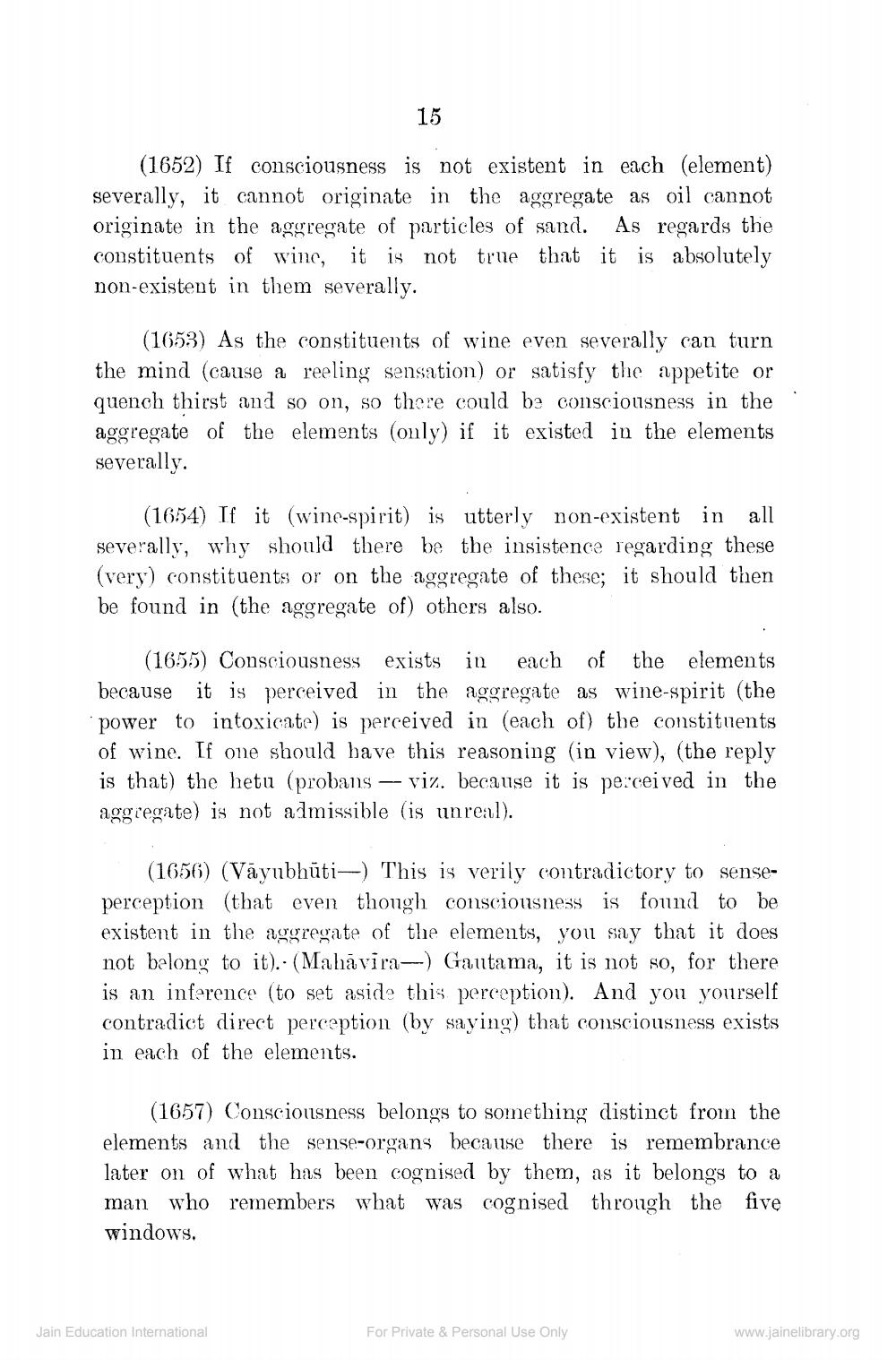________________
15
(1652) If consciousness is not existent in each (element) severally, it cannot originate in the aggregate as oil cannot originate in the aggregate of particles of sand. As regards the constituents of wine, it is not true that it is absolutely non-existent in them severally.
(1653) As the constituents of wine even severally can turn the mind (cause a reeling sensation) or satisfy the appetite or quench thirst and so on, so there could be consciousness in the aggregate of the elements (only) if it existed in the elements severally.
(1654) If it (wine-spirit) is utterly non-existent in all severally, why should there be the insistence regarding these (very) constituents or on the aggregate of these; it should then be found in (the aggregate of) others also.
(1655) Consciousness exists in each of the elements because it is perceived in the aggregate as wine-spirit (the power to intoxicate) is perceived in (each of) the constituents of wine. If one should have this reasoning (in view), (the reply is that) the hetu (probans -- viz. because it is perceived in the aggregate) is not admissible (is unreal).
(1656) (Vāyubhūti-) This is verily contradictory to senseperception (that even though consciousness is found to be existent in the aggregate of the elements, you say that it does not belong to it).- (Mahā vira--) Gautama, it is not so, for there is an inference (to set aside this perception). And you yourself contradict direct perception (by saying) that consciousness exists in each of the elements.
(1657) Consciousness belongs to something distinct from the elements and the sense-organs because there is remembrance later on of what has been cognised by them, as it belongs to a man who remembers what was cognised through the five windows
Jain Education International
For Private & Personal Use Only
www.jainelibrary.org




